with Cast Iron

























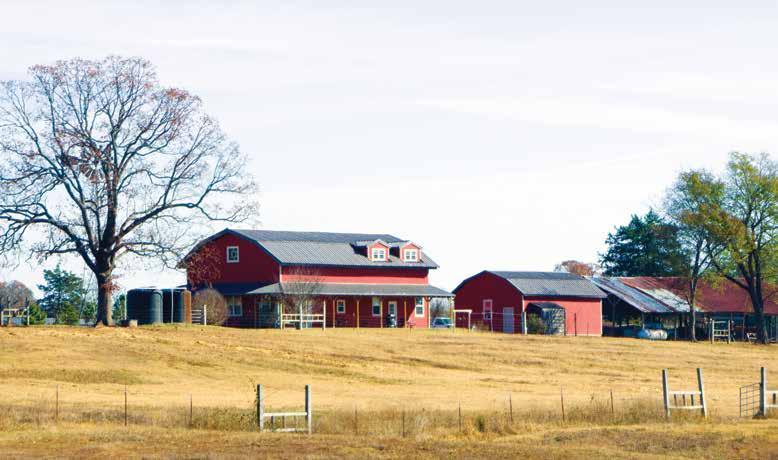
That is the foundation of our organization. Our policy is the long-term and short-term road map. Think of it as a GPS that helps us us navigate through the law-making process. It has been that way since the beginning of Arkansas Farm Bureau.
For those of you who are not familiar with that term “grassroots,” here it is in the simplest way.
Our organization, which started in Arkansas in 1935 (87 years ago!), was, and still is, driven by our individual counties. Our policies, our plans, our direction, it all comes from the county level. In our policy development process, an idea, a concern, a want, or need is brought up to a county board to reject or to support. This could be a small issue, or it could be a major policy issue that effects thousands. Either way those thoughts are put through a vigorous process of debate by the volunteer members once a year. If and only if the idea is passed by our volunteer members, then it becomes part of the official policy of Arkansas Farm Bureau.
This is, admittedly, an oversimplification of a lengthy, well-thought-out process, but nevertheless those are the rules that we all agree to follow every single year.
So when, at any point in the year, if a conflict or concern arises that we have policy on, we act on it. Our staff, with the leadership of our state board, acts on hundreds of issues a year. Again, all those actions are predicated by the single volunteer member in a county who had the thought or idea for that policy.
As we approach the midterm elections there are some issues on the ballot for which we have policy. The specifics of these ballot issues and our position according to our
policy, can be found elsewhere in this issue of Front Porch. It’s a simple “yes,” we support, or “no” when we do not support. But know there has been an enormous amount of meaningful work, toil, and debate from our membership at the “grassroots” level that goes into that “yes” or “no” position from the Arkansas Farm Bureau.
Our stances on these issues come from our membership and our policy-making process. Any variation from this process would erode our very organization, which is made up of people across Arkansas, from every county in our great state.
So, when a friend or neighbor asks you about Arkansas Farm Bureau’s position on the ballot or during a session, know that it’s from our members, our “grassroots,” that, in fact, is the engine that runs our Farm Bureau.
Agriculture is the largest business in our state. Farmers and ranchers are working hard every day to provide that steak you enjoy at dinner, or the fried chicken with rice and gravy that your family enjoys on Sunday. Our farmers and ranchers provide the roof on your house, the cotton in your clothes, and they provide the tax base for our children’s school. They are the very backbone of Arkansas.
To be a small part of these hard-working people is a distinct honor. To be part of the “grassroots” process of Arkansas Farm Bureau is a necessity for my family farm.
Thank you for your membership in one of our state’s truly unique organizations. •
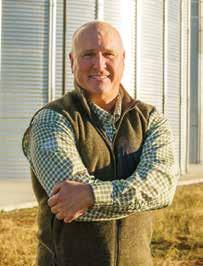
So, when a friend or neighbor asks you about Arkansas Farm Bureau’s position on the ballot or during a session, know that it’s from our members, our “grassroots,” that, in fact, is the engine that runs our Farm Bureau.
Official membership publication of Arkansas Farm Bureau Federation mailed to almost 190,000 member-families.
SUBSCRIPTIONS
Included in membership dues
A RKANSAS FARM BUREAU OFFICERS: President • Rich Hillman, Carlisle Vice President • Mike Freeze, Little Rock Secretary/Treasurer • Dan Wright, Waldron Executive Vice President • Jeff Pitchford, Conway
DIRECTORS: Jon Carroll, Moro
Joe Christian, Jonesboro Terry Dabbs, Stuttgart
Jack Evans, Lonoke Sherry Felts, Joiner
Chase Groves, Garland City
Jason Henson, Mount Judea Tom Jones, Pottsville
Terry Laster, Strong Caleb Plyler, Hope Bob Shofner, Centerton Rusty Smith, Des Arc Joe Thrash, Houston
EX OFFICIO Magen Allen, Bismarck Monica Paskewitz, Melbourne Kerry Stiles, Marianna Reed Storey, Marvell
Executive Editor • Steve Eddington Editor • Rob Anderson
Contributing Writers • Keith Sutton, Shaylee Wallace Barber
CREATED BY PUBLISHING CONCEPTS, INC David Brown, President dbrown@pcipublishing.com (501) 221-9986 ext. 103 Fax (501) 225-3735
ADVERTISING
Contact Paula Caruthers at Publishing Concepts for advertising rates pcaruthers@pcipublishing.com (501) 221-9986, Ext. 109 Fax (501) 225-3735

Front Porch (USPS
by the Arkansas
10720 Kanis
Periodicals
POSTMASTER:
Front Porch •
Please
Little Rock, AR 72211
at Little Rock,
at rhonda.whitley@arfb.com
Little Rock,

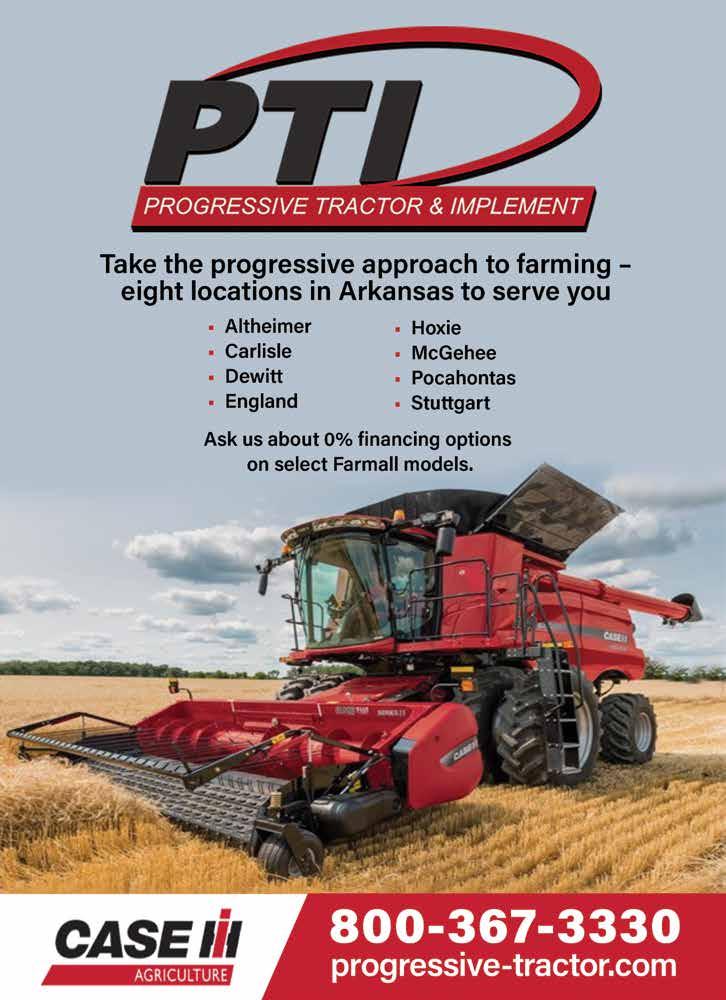
For over 70 years Farm Bureau® Insurance’s commitment to our customers has never wavered. In that time, local agents and adjusters have served communities all over Arkansas with home and auto insurance, and more. We believe that your family is part of our family. And protecting families has always been our pledge. Talk with your local agent to learn more about the Farm Bureau Promise.

My life changed forever on May 29, 202. In the early morning hours of that day, my daughter, Macie, was born. Since that amazing moment, I’ve learned a variety of new (and sometimes unpleasant) things: how to change diapers, how to install and buckle car seats, how little sleep my wife and I can get and still function … basically the entire “new parent” checklist.
As she has grown, Macie has gone from pureed foods to sharing in whatever we have for supper and the usual assortment of fruits and healthy snacks. Throughout this process, my wife and I have had frequent discussions about what she needs to eat in order to grow and be healthy and active. The process of educating ourselves about the food we eat and serve our daughter always leads us back to the starting point: the farm.
Fortunately, I have a pretty good source for information. I work with and for the members of Arkansas Farm Bureau and, even though I grew up on a farm, my years at Farm Bureau have taught me a great deal more about agriculture, and what it takes to get food from fields to our tables. This is an advantage that many people don’t have.
The unfortunate truth is that most in our society doesn’t realize 21st century agriculture is not their grandfather’s farming. It’s not even the farming they read about or imagined as a child. Today’s agriculture is – perhaps more than ever before – about science, technology, biology and math.
As younger Arkansans lack the direct connections to farming that previous generations had, it becomes more


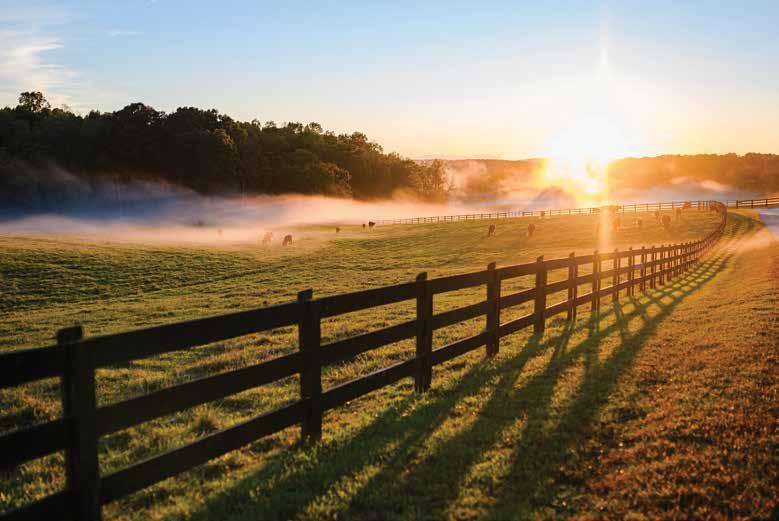
and more important to educate them on how food is grown and how it gets to their plate. While we at Arkansas Farm Bureau are working to provide this information through our programs and communication channels, it has become clear we need to do more and do it sooner, when children are young. Students in the early grades are already learning about science, technology, math and other subjects critical to modern agriculture, so it’s an ideal time to incorporate agriculture education into our schools. From Kindergarten to sixth grade, young Arkansans need to understand the science of growing the food we eat, the fiber for our clothes and the timber for our homes and businesses.
Young Arkansans also need to understand what it takes to be a farmer in the 21st century and how science, technology and math – all STEM education components – play a huge role. Students should understand how seeds become plants, how we get milk from cows and why trees are important for shelter and clean air, and all of these things can be part of a hands-on learning experience ideal for younger students. Throw in drones and other exciting technology used in modern, sustainable agriculture and we are planting an important seed; a seed that will grow into a strong future for Arkansas agriculture and more jobs in the state’s largest industry.
•
From Kindergarten to sixth grade, young Arkansans need to understand the science of growing the food we eat, the fiber for our clothes and the timber for our homes and businesses.
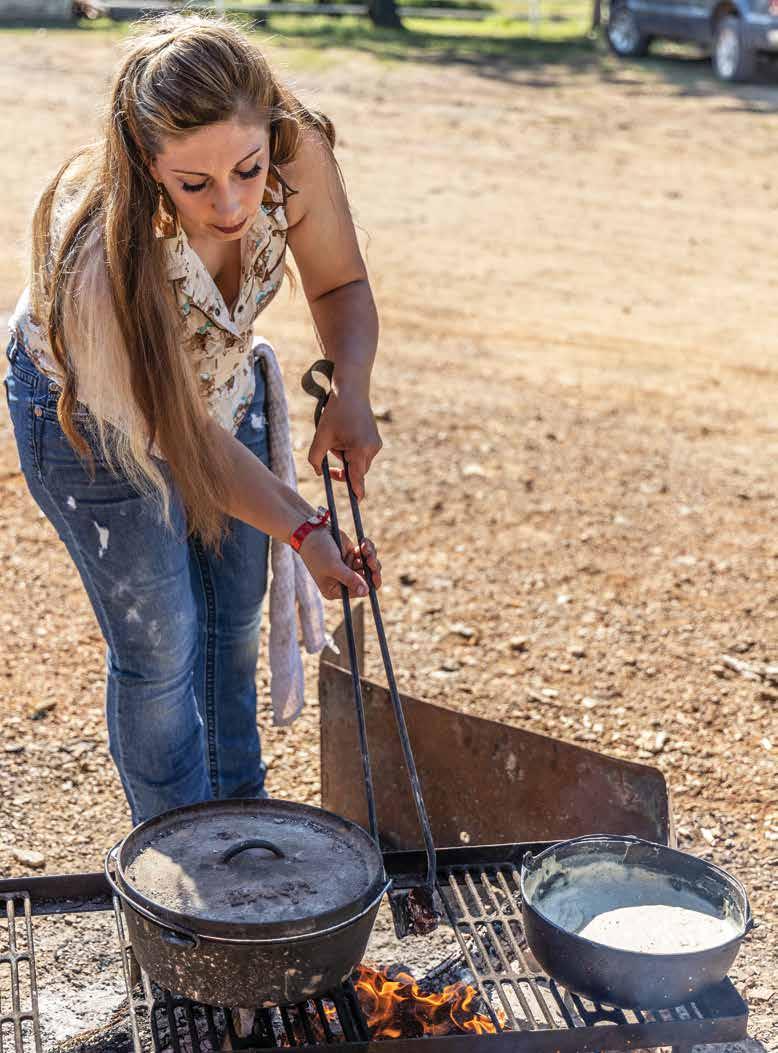
Formany of us, fond memories with family include being gathered around a table sharing a meal. And for some of us, part of that core memory includes savory dishes and sweet desserts richly cooked in a piece of cast iron. Ashley Smith of Bismark, never envisioned a future where she grew a hobby of cast iron cooking into a business, but because it’s part of American history that is slowly disappearing, she is now working to preserve cast iron cooking in the Natural State.
“I call it accidentally God-led,” said Smith. “I was going to cook steaks one day, and when I opened the grill, it literally fell apart. So, I built an open fire and set a grate over it and from there it just kind of, well, went.”
After discovering her love for cast iron, she entered local cooking contests, and with six titles under her belt, the following year a trail ride needed a food vendor. She was such a hit that others began to encourage her to do something more with her new passion. So, from her humble beginnings with a small open fire and one grate, Smith now operates her business, ‘Just Horsen Around Cooking,’ which includes a multitude of cast iron, open fire cooking, a genuine chuckwagon and a food truck.
Smith attributes much of her growth and success to the people who have not only believed in her but invested in her as well.
“Well, I purchased the wagon from some good friends, but I had been borrowing the food truck.” Smith said. “When they decided to sell it, they gave me first dibs on it, but I couldn’t get a bank loan. And I was so fortunate because people believed in me. Some great people loaned me the money, and then two weeks later… they said don’t you worry about that loan.”
Smith explained that it isn’t always that easy or simple, but somehow things always come together. The difficulty of food permits, tax protocol, food safety and inspection… it was a lot to take on, but now she runs her business with confidence and her unique niche as a vendor and caterer has made her an undeniable standout.
“We’re the only ones in the state that are actually a foodpermitted truck that operates with cast iron, and especially from a wagon,” she explained.
‘Just Horsen Around Cooking’ travels to two or three events each month. And with a diverse crowd, Smith can be found at anything from chuckwagon racing to catering weddings, she has also taken her wagon to trail rides, hot air balloon festivals, Petit Jean Mountain, Malvern Frontier Days and even the late Loretta Lynn’s Ranch.
In addition to catering and vendor work, there’s an educational aspect as well. During the Frontier Days, Smith sets up demonstrations for old-fashioned cooking featuring open fire and a multitude of cast iron, all from the back of her chuckwagon. She also leads classes during some of the local 4-H camps and says you can even make ice cream in cast iron.
“I love being outside,” said Smith. “And when you really start learning about the history, the dying history, of it, well it’s become
‘Just Horsen Around Cooking’ is the only permitted food truck in the state that operates with a chuckwagon and cooks primarily over open fire with cast iron.
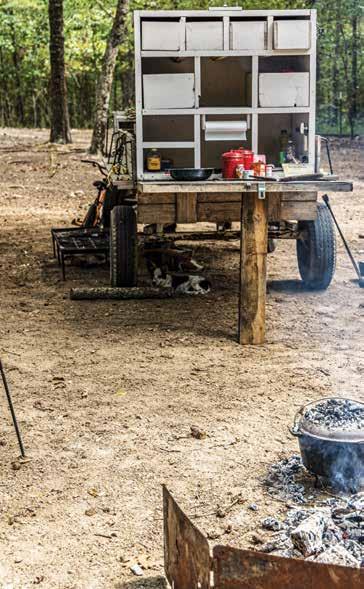
Cast Iron cooking is a long-standing skill that Ashley Smith is working to preserve.

Ashley Smith has fond memories of cooking with her family and some of her recipes, like her cast iron, have stood the test of time.

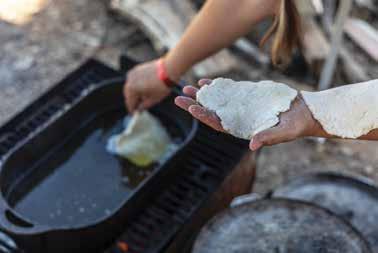
<<continued from page 9
important to me to keep it alive. There’s a generation that is disappearing and so much of that knowledge is disappearing with them.”
With a collection of more than 50 cast iron pieces, Smith says that each has its own history and use and finding just the right pieces to add to her collection is both fun and challenging.
“Each piece has its own story to tell,” Smith said. “My favorites are the gate mark pieces. They have a ‘scar’ on the bottom. So, they aren’t a brand, you don’t know who made them, but you know they’re from the 1800s.”
Smith displays her collection in an entire corner of her house, which doesn’t include her most used pieces or the ones hanging above her stove, there are so many you can’t even view all the pieces in one place! Whether it’s a gate mark piece, Lodge, Waggoner or Griswold, Smith favors pieces with history, but she also knows recognizes the importance of finding pieces that work for any home.
“Cast iron today is still great,” Smith said. “The process changed in the 1900s when they started manufacturing pieces
From “Creek Fry Bread Tacos” to “Cowboy Beans” with cornbread, Ashley Smith’s dishes shine at any event she works.


and pouring them into molds, but all in all, what you get at the store is still a solid product. Most people think you have to go out and spend big money on an antique piece and restore it, but really you can start learning how to cook with cast iron on any budget.”

Smith uses her Facebook business page to make videos educating people about the different brands of cast iron, as well as how to properly care for and use them. She even restores damaged or rusted pieces she finds. She enjoys sharing her knowledge and her businesses values read, “Take a step back in time with us, when time moved at a slower pace, when manners and human decency were far more common. A time when a good homecooked meal not only filled your stomach, but your heart. A time when the west was still wild. Come experience a piece of history with us, that has stood the test of time, from the dusty trail to grandmother’s kitchen.”
In addition to the business and educational side of her passion, as a single mom of six, Smith loves the family aspect as well, which is why she heavily encourages others to “just start somewhere.” Being outside with her family, cooking and teaching them a skill, is her favorite way to spend her time, and she wants to give that back to her children as well.
“People have such fond memories of their grandmothers or other family members with cast iron,” Smith said. “And now we live in such a fast-paced world, I just want my kids to have this. I want them to have the memories of what we cooked together. I want them to have the chance to gather around the table together and enjoy it.”
Luckily for Smith her kids really do enjoy it. And now, as her business continues to grow, she hopes that each meal she serves at every event helps create those memories and spark an interest for other families as well.
For more information visit www.facebook.com/JustHorsen-Around-Cooking-103892114714601. •
Check out one of our latest videos to learn more about Ashley Smith and her love for cast iron.
Ashley Smith has more than 50 pieces of cast iron in her collection, she hopes that with each piece and each event she can continue to pass the knowledge, skills and love of cast iron cooking to her family and friends.
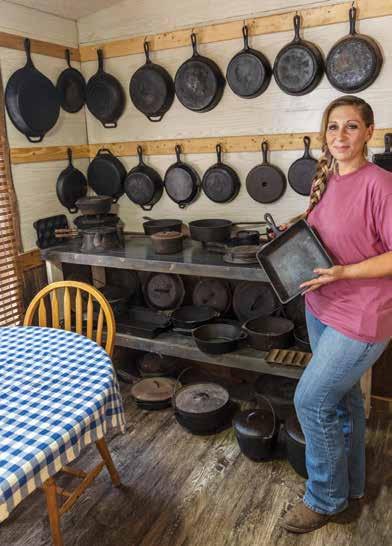
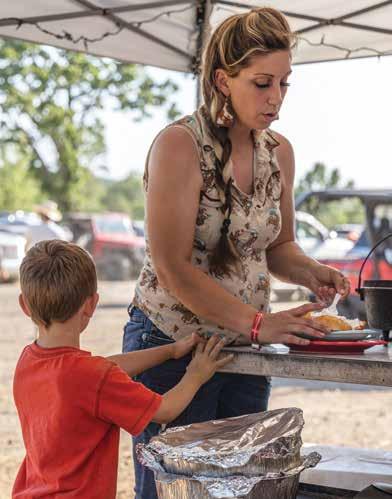
Arkansas Farm Bureau members, through the organization’s annual policy development process, have defined clear positions on three of the four issues that will be on the ballot in the upcoming election. Early voting starts Oct. 24 and election day is Nov. 8, and we encourage members to exercise their important right to vote.
As a result of existing policy, Arkansas Farm Bureau’s board of directors has directed the organization to make clear its position in opposition to Issue 1, which would make it easier for special sessions of the General Assembly to be called; For Issue 2, which would make it more difficult to change the Arkansas Constitution; and against Issue 4, which would make recreational marijuana legal in Arkansas.
The organization does not have specific policy on Issue 3, so Arkansas Farm Bureau has not declared a public position. Issue 3 creates the Arkansas Religious Freedom Amendment. This measure prohibits state and local governments from burdening the practice of religion unless there is a compelling reason to do so. We are neutral on Issue 3; freedom of religion, worship and religious exercise or practice is already protected by the United States Constitution and the Arkansas Constitution.
Arkansas Farm Bureau wants to emphasize that it stands with its members on the issues where policy is clear. We encourage you to vote NO on Issue 1, YES on Issue 2 and NO on Issue 4.
Here is more detail on each of the issues and Farm Bureau’s existing policy position.
Long-standing Arkansas Farm Bureau policy states: “We support the General Assembly continuing to meet once every two years, with the Governor calling special sessions as needed.” (Government 157, #24.)
Issue 1 would allow the Arkansas legislature to call themselves into special session at any time in one of two ways: the speaker of the House and president of the Senate jointly deciding to convene lawmakers; or two-thirds or more of both the House and Senate signing a written proclamation. Under the current system, only the sitting governor can call a special session. ArFB opposes Issue 1 because it would limit the number of Arkansas citizens who would have time to serve and threaten the balance of power between the branches of government.
The bottom line is special sessions should be called in
rare circumstances and not used as a political tool. Since our state’s government was reorganized in 1874, only the sitting governor can call for special sessions of the general assembly/ legislature and set the agenda for these sessions. It is a system that has served our state well for almost 150 years and provides a balance between the executive and legislative branches of our government.
Current Arkansas Farm Bureau policy states: We recommend the legislature study the procedure by which ballot initiatives are proposed, with the possibility of making the process more stringent. (Government 157, #45)
Arkansas Farm Bureau policy supports Issue 2, because we believe constitutional issues should meet a higher threshold than a simple majority. Issue 2 would require a 60% vote to approve ballot issues, which, if passed, amend our state constitution. ArFB supports a more stringent process for public referrals to get on the ballot in Arkansas since many recent ballot issues have had a negative impact on our state. Several ballot issues have become Constitutional law in the past several years, and they are extremely difficult to amend or remove afterwards. It stands to reason that these measures should meet a higher threshold to become a part of the Arkansas Constitution.
On Issue 4, two policy positions currently exist, stating: We support legislation to ban production or use of recreational marijuana in the state of Arkansas. (Crime and Law Enforcement 162, #40). Also, “We oppose the legalization of recreational use of marijuana.” (Narcotics and substance abuse, N158, #3)
Issue 4 is a citizen-initiated measure to legalize recreational marijuana. A major workplace issue in Arkansas is absenteeism/employee sobriety. We believe legalizing recreational marijuana will intensify this challenge, making it more difficult for agriculture and other key industries to access the workers they need to meet food and product demands. Studies have shown open access to recreational marijuana leads to higher risk of drug addiction in minors and more dangerous roadways for Arkansans. In Washington state, the share of drivers who tested positive for marijuana following a fatal crash has doubled since the state legalized marijuana. And in Colorado, marijuana-related traffic deaths have more than doubled since the state legalized marijuana. •
U. S. Postal Service Statement of Ownership, Management, and Circulation (Required by 39 U.S.C.3685). 1.Publication title: Front Porch. 2. Publication number:01-9879. 3. Filing date: 10-17-22.4.

Issue frequency: Quarterly.5. No. of issues published annually: Four. 6. Annual Subscription Price: $0. 7. Complete mailing address of knownoffice of publication: Arkansas Farm Bureau Federation, 10720 Kanis Road, Little Rock, AR 72211. 8. Completemailing address of headquarters of General Business office of Publisher: Same as #7. 9. Full names and completemailing address of Publisher, Editor and Managing Editor: Publisher, Arkansas Farm Bureau Federation; Executive Editor, Steve Eddington; Editor, Rob Anderson. All addresses same as #7. 10. Owner: Arkansas Farm Bureau Federation, 1l. Bondholders, Mortgages and other Security Holders owning or holding 1 percent or more of total amount of bonds, mortgages or other securities: None. 12. Tax Status: unchanged. 13. Publication title: Front Porch. 14. Issue date for Circulation date: Fall 2022. 15. Extent and nature of circulation: Average no. copies each issue during preceding 12 months: 182,602 Actual no. copies of single issue published nearest to filing date: 183,102 15a. Total no. of copies net press run average each issue 182,602 15b. Paid/Requested outsidecounty mail subscription: 182,602 (most recent 183,102). 15c. Total paid and/or requested circulation: 185,209 (most recent 183,102). 15d. e. Not Applicable. 15f. Total Distribution: 182,602 (most recent 183,102).15g. Copies not distributed 30 (most recent 35). 15h. Total: 182,632 (most recent 183,137). 15i. Percent paid: 100%. 16. Statement of ownership will be printed in the Fall 2022 issue of the publication. 17. Signature and Title of Editor, Publisher, Business Manager or Owner. Rob Anderson, Editor.
Notice is hereby given that the annual meeting of the voting delegates elected by the members of the Arkansas Farm Bureau Federation will be at 8 a.m., Friday, Dec. 2, 2022, at Hot Springs Convention Center in Horner Hall in Hot Springs, Arkansas. Due to the continuing health and safety concerns related to COVID-19, delegates will be provided an option to participate in the meeting virtually.
The purpose of this meeting is to elect a Board of Directors for the ensuing year and for the transaction of such other business as may properly come before the meeting.
Jeff Pitchford Executive Vice PresidentNotice is hereby given that the annual meeting of the members of the Farm Bureau Mutual Insurance Company of Arkansas, Inc. will be Friday, Dec. 2, 2022, at 12:30 p.m., at the Hot Springs Convention Center in Rooms 208-209 in Hot Springs, Arkansas.
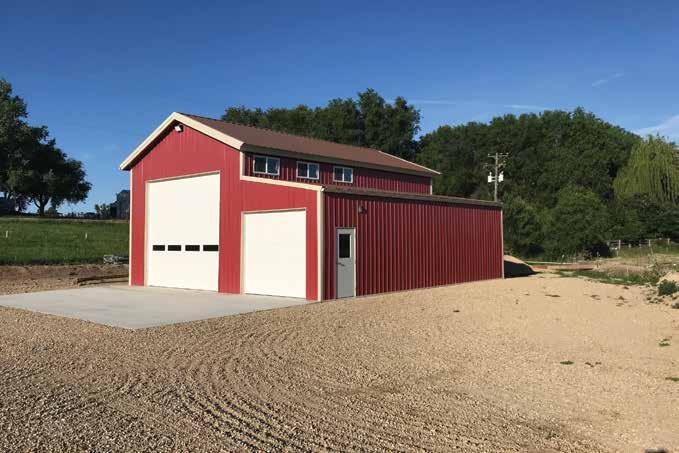
The purpose of this meeting is to elect a Board of Directors for the ensuing year and for the transaction of such other business as may properly come before the meeting.
Kevin McKenzie EVP-General Manager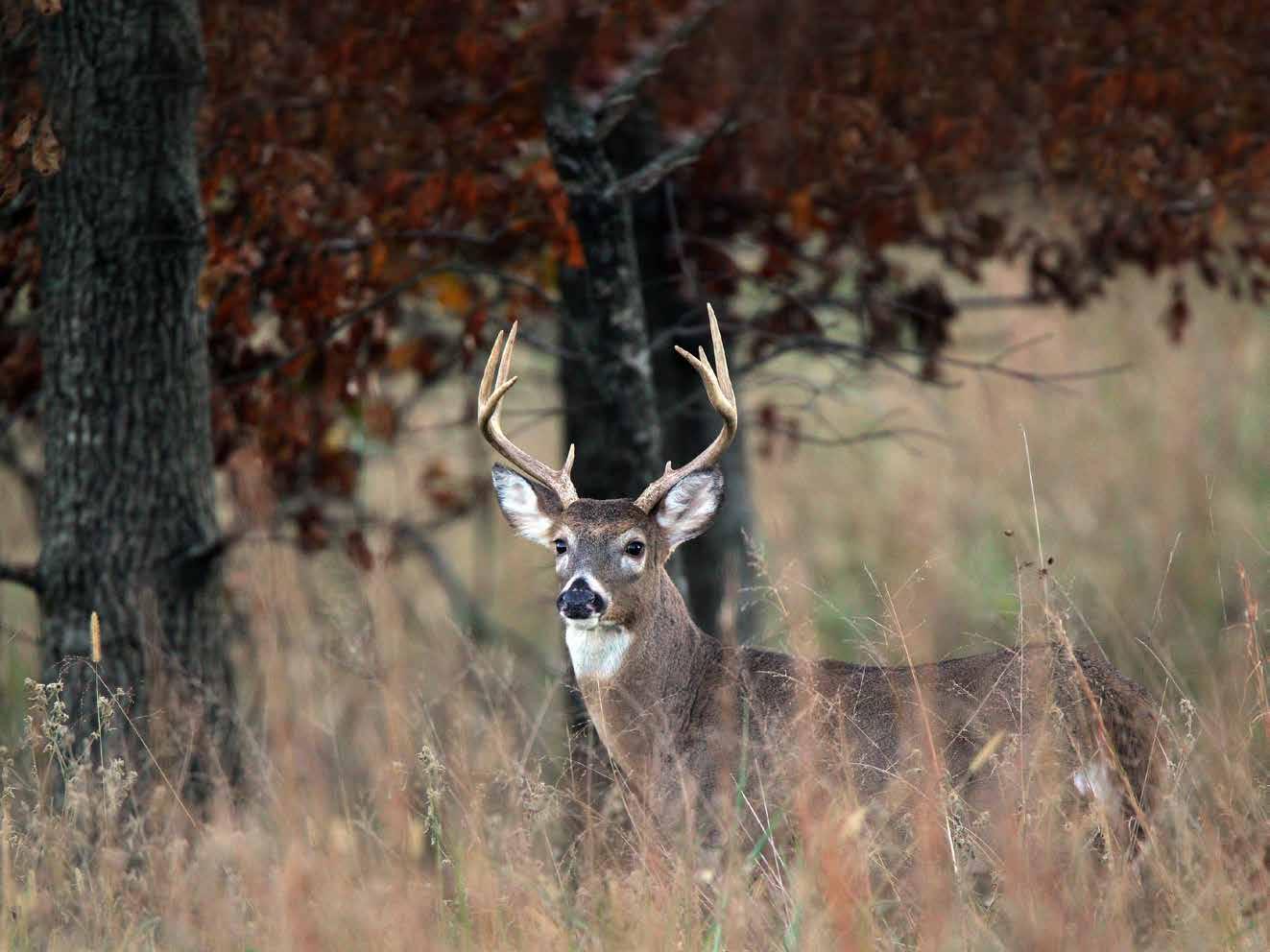


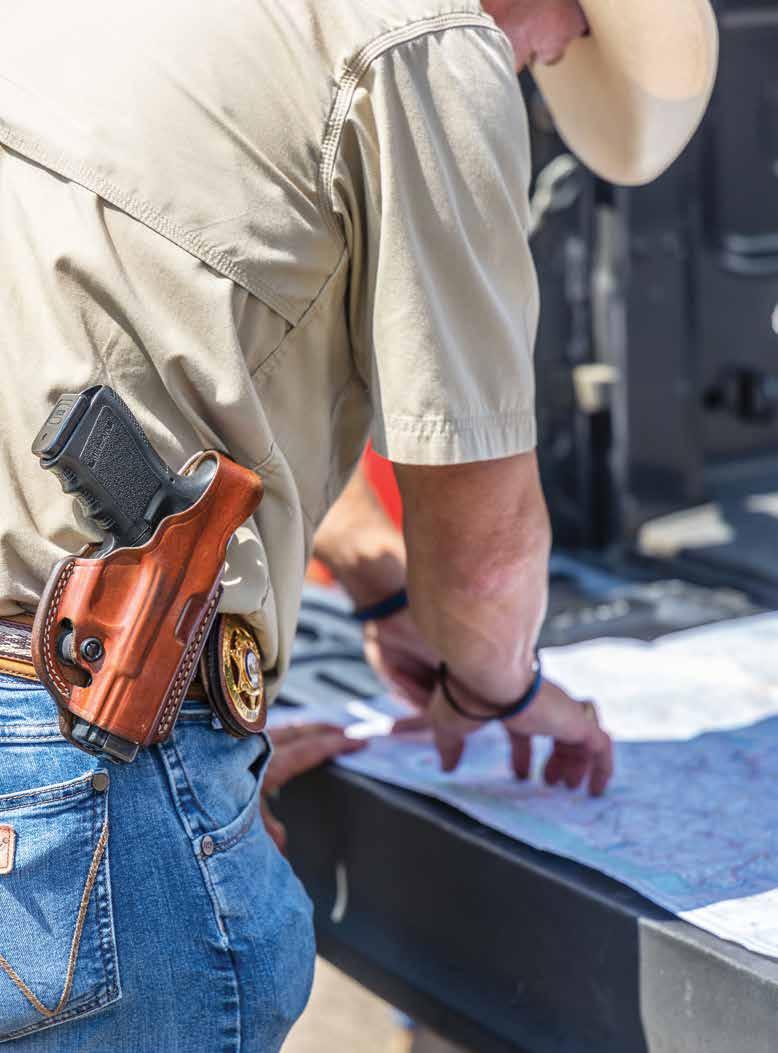 By Dwain Hebda
By Dwain Hebda
It’s before the crack of dawn as the rancher reaches for another sip of coffee in the dark of the kitchen. The small television nearby crackles about weather moving in, but he already knows that; he’s been on this land since the day he was born, walking in the footsteps of his father and his father’s father, and he can smell a storm from miles away.
The pickup door creaks closed and the engine turns. He points the wheel to the south pasture as the cloudfiltered dawn warms the horizon. He’s got to get that herd moved before the rain starts, and the short drive is the last rest he’ll get today. But when he gets there, the gate’s open, its chain cut, and his livestock is nowhere in sight. The day just got longer.
To some, cattle rustling is something only seen in movie westerns, but in rural Arkansas it can be a fact of ranching life. Cattle, like farm equipment or felled timber, is a commodity and as such a temptation to thieves looking to make a quick buck. And despite what some city dwellers might think, The Natural State still has its big spaces, offering the criminal element plenty of cover and stretching law enforcement to the limit.
That’s where the agents of the Arkansas Department of Agriculture come in.
“The sheriff is the highest law enforcement officer of any county,” said Billy Black, chief of law enforcement for AAD. “Nowadays with the drug problem being what it is and murder, rape, whatever, those are the high-profile crimes. A tractor being stolen, a cow being stolen, that’s going to fall pretty low on the radar when there are other, more serious crimes to deal with.
“That’s the role we fit, the crimes that nobody really wants to take part in. By no means will we ever come in and take any case from a sheriff’s office; they usually call us and say we don’t have time for this can you come work this or we work it together.”
DOA’s unique law enforcement agency was formed in 2018 from a predecessor unit that had functioned under the Arkansas Forestry Commission (ARFC), a unit focused specifically on arson, theft and vandalism affecting the state’s timber industry. In 2017, DOA leadership was concerned about other agricultural crimes, such as those involving livestock and equipment, being left without investigative resources.
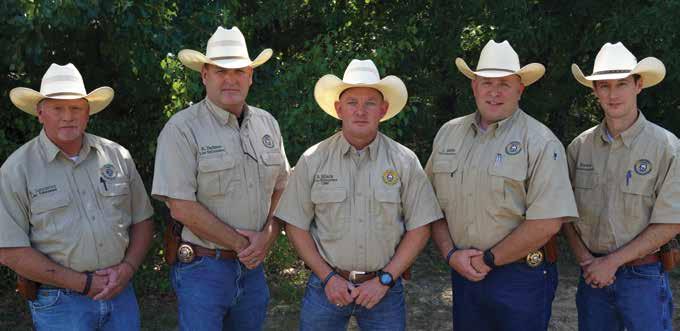
“Arkansas Secretary of Agriculture Wes Ward and Gov. Asa Hutchison had been discussing the issue and they wanted to expand the previous agency’s role to where all the farmers and ranchers in the state of Arkansas had representation from law enforcement and investigation into crimes,” Black said.
The department’s work is carried out through a staff of four agents, each responsible for a quadrant of the state. Meeting them for the first time, they could easily be mistaken for any other branch of law enforcement, where three of the four started their careers.
Keith Dedmon has been with the unit for three years and rides herd over 20 counties in Northwest Arkansas. The Waldron native, who joined the team after stints as chief of police in Hartford and a deputy in Scott County, said the job requires special training that’s updated regularly, but the day-today comes down to good old-fashioned investigative work.
“It’s really about working the cases the way they should be worked,” he said. “The challenge is, there’s so many cases and they’re so far spread out it’s really hard to focus on just one case. You have to work several cases at one time.”
Dedman said despite the close-knit nature of many of the communities in his territory, residents are generally accepting of his presence, knowing he’s often working for the small operator who can least afford to lose livestock or equipment.
“They need the help and they want the help,” he said. “It’s just like any other investigation; when you are talking to the neighbors, some of them don’t want to get involved and some do.”
on page 18>>
Agents also work to create positive working relationships with local law enforcement, which expedites cases and also helps put additional eyes into the countryside.
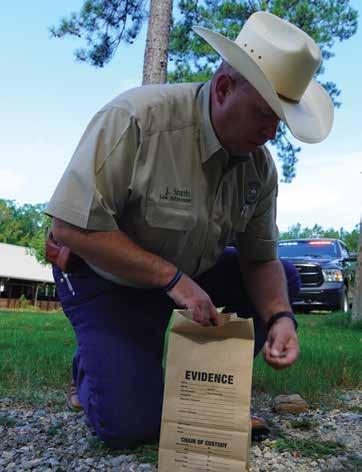
“We all have a good working relationship with the sheriff’s offices in our respective areas,” said Justin Smith, a three-year member of the unit who covers 18 counties in Southwest Arkansas. “If I don’t know where I’m going, I’m going to call the sheriff’s office and talk to one of the deputies or talk to the sheriff and get more background on the person before I just go rolling out there.
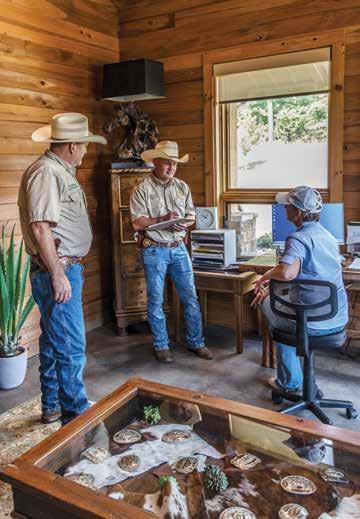
“Also, if we get up there and we’re looking for some cows and somebody’s got a meth lab, we are surely going to call the state police or the local sheriff’s office. We’ll still work the cattle part, but they come out there and handle the meth lab part.”
Agents have arrest authority and are armed, however their primary responsibilities in a typical case are investigation and recovery. But even though kicking down doors and high-speed chases aren’t part of a typical day’s work, that doesn’t eliminate the potential dangers of the job.
Russell Lancaster, who started his law enforcement career with the unit while it was still under ARFC, recalls a 2021 case where he tracked down an arsonist who holed up in his house that was later found to contain 50 guns, strategically placed by windows and doors in the event of an attempted breach. Lancaster exercised discretion, standing down to coordinate with local law enforcement, who later picked up the suspect without incident.
“We definitely would have been under fire if we had gone into his house,” said Lancaster, who covers 20 counties in Northeast Arkansas. “That case was a pretty big deal for me. It took me two years to figure those guys out so once I finally got it figured out, it was pretty satisfying.”
Agricultural crimes follow certain trends, Lancaster said, and targets can be surprisingly specific.
“It depends on your location on what you deal with,” he said. “In my area and Keith’s area we got walnut logs up in north Arkansas, oak stave logs that they use to make whiskey barrels. It’s a big market and they pay big money for those logs. A lot of the drug users are stealing those to make money real quick. I’m dealing with a lot of that in the last couple years, in my area.”
In addition to their primary counties, agents also collaborate frequently with each other on pending cases. Kendall Rawls, who with nine months at DOA under his belt is the rookie of the group, said this team-first mentality is one big reason for the group’s effectiveness.
“Like everyone else, I work my cases by myself but at the same time I could call Chief or any of these guys and say, ‘Hey, I got this going on, what do you think about it?” said Rawls, who covers
Investigation and recovery are the primary responsibilities for the team, as most agriculture crimes involve some form of property.
Exercising discretion while investigating and collecting evidence allows the team to do their jobs more efficiently and safely.
18 southeast Arkansas counties. “Even nine months in, I’ll call and ask questions.
“There’s been several cases that I’d have a fire to go look at and I would think one thing and then I’d call my fellow agents and say let’s go look at this fire again, see if we both agree where this thing started. We bounce stuff off our leader, we bounce stuff off each other.”
This team approach has boosted the efficiency of the department’s work. In fiscal year 2021, the unit opened 200 cases and closed 133, resulting in restitution of more than $600,000. It also provided agency support to other law enforcement 158 times. In the just-completed fiscal year 2022, 267 cases were opened and 158 cleared, resulting in restitution of $530,000. It also assisted in nearly 200 projects by other agencies.
Despite this annual productivity, limited headcount and a spike in the number of agricultural crimes have the department working under a constant backlog of dozens of cases. Still, Black said he’s proud to lead a department that has quickly become a trusted ally to the state’s agricultural community.
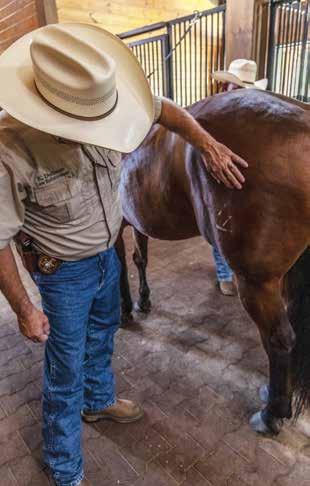
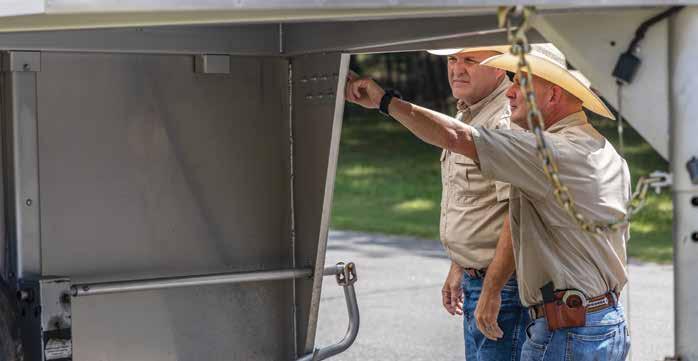
“Agriculture is a $19.4 billion industry in the state Arkansas,” he said. “We just want the producers out there to know that we appreciate what they do, and in turn, we want to give them the satisfaction of knowing that we are here for them. That goes for everyone; we work the big cases and we go after those affecting Mom and Pops, getting them back that retirement they lost to somebody who stole it from them. It’s a big deal to my guys that when someone needs help, we get them that justice.”
•

Scan the QR code to learn more about the Agriculture Law Enforcement Team.Chief Billy Black always recommends detailed records of property, descriptions and photos help greatly with investigations as well. Registered brands on livestock are often a key identifier in livestock theft investigations.










On April 1, 2023, Publishing Concepts, Inc. will be celebrating the 17th Annual Nursing Expo at the Jack Stephens Event Center on the UALR campus.

In conjunction with this event, we will be hosting the Compassionate Nurse and Outstanding Nurse Educator Award Ceremony honoring 20 of Arkansas’s compassionate nurses and 5 of Arkansas’s outstanding nurse educators.
• We are searching Arkansas to find the top 20 exceptional nurses in the state. Do you know a nurse who you feel is compassionate, caring, and empathetic? A nurse who has given comfort or care to you, a family member, or a friend? It may be a nurse you work with.

• We are also searching for the 5 outstanding nurse educators in the state. These educators are a driving force in the development and support of the nursing profession. It might be a professor, who was impactful in your education or a colleague.
We ask you send us your nominee’s name, where they work, phone number, 2-4 photos if possible and a short essay (up to 500 words), expressing why you think they are most deserving.
Be sure to include
us to get back in touch with you.









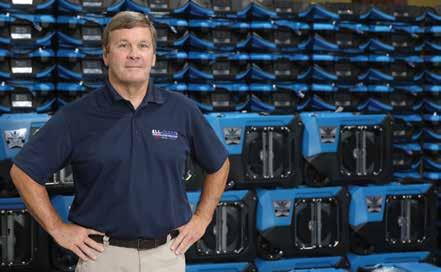








Cavenaugh Ford 2000 E. Highland Drive Jonesboro, AR 72401 870-972-8000



Ford of West Memphis 2400 East Service Rd. West Memphis, AR 72301 870-735-9800 www.fordofwestmemphis.com
Red Taylor Ford, Inc. 401 W. Second St. Corning, AR 72422 870-857-3516 www.redtaylorford.com
Ryburn Motor Company, Inc. 156 Highway 425 South Monticello, AR 71655 870-367-5353 www.ryburnautomotive.com
Cogswell Ford 1900 East Main Russellville, AR 72801 479-968-2665 www.cogswellford.com
Glen Sain Ford, Inc. Danny Ford, owner 1301 Hwy 49 North Paragould, AR 72450 870-236-8546 www.glensainford.net
Riser Harness 2000 E. Race Ave. Searcy, AR 72143 501-268-2486 www.riserharnessford.com
Smith Ford, Inc. 908 E. Oak St. Conway, AR 72032 501-329-9881 www.smithford.net
Vaughn Ford Sales, Inc. 106 Hwy 63 West Marked Tree, AR 72365 870-358-2822 www.vaughnford.com
Cool autumn days and Friday night football just might have you craving some comfort food. And if you’re searching for the perfect dish to help warm up this fall, Ashley Smith with ‘Just Horsen Around Cooking’ has you covered. A classic twist on baked beans, Cowboy Beans will turn a favorite side dish into a main dish, pair it with your favorite cornbread recipe and it’s sure to please. She says they’re best cooked in a dutch oven, but don’t let that intimidate you! You can use any of your favorite cookware to put this savory one-potwonder together.
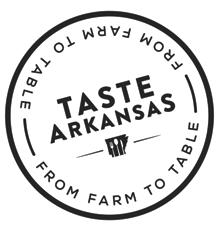
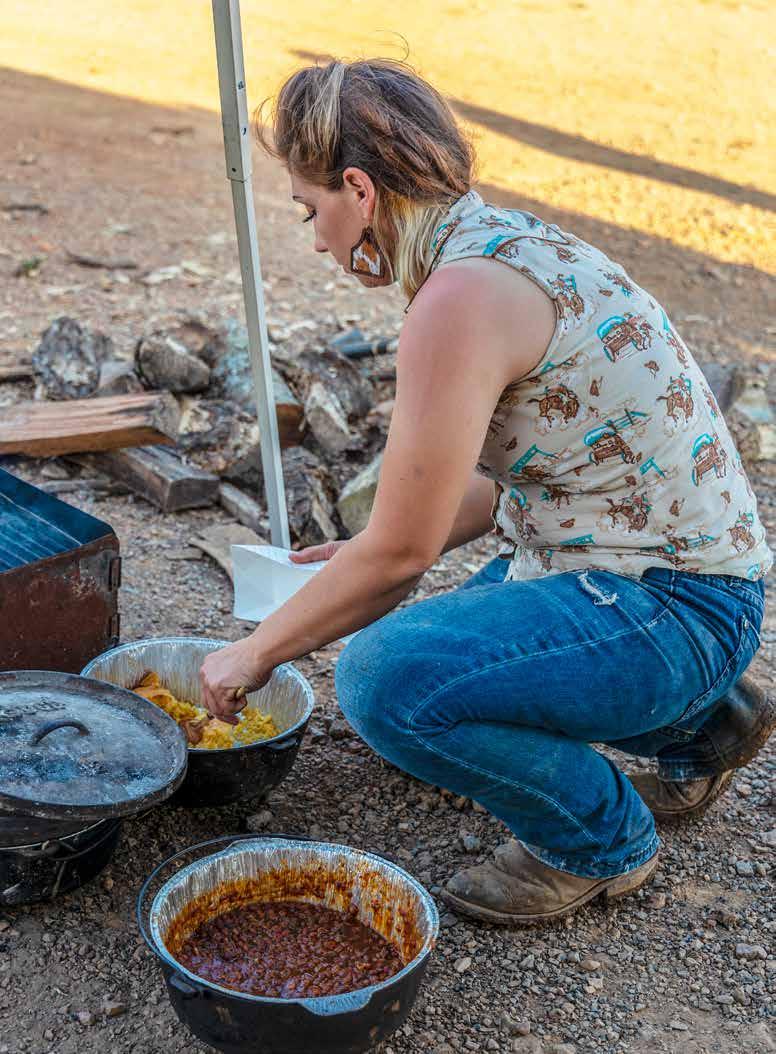
Ingredients

• 1 pound of ground hamburger meat
• 1 sweet onion chopped
• 1 cup of sweet peppers chopped
• ½ cup brown sugar
• 2 tablespoons of honey
• 1 teaspoon of all-purpose seasoning
• 3 cans of brown sugar hickory baked beans
Grab your dutch oven or your favorite large pot or skillet!



1. Over medium heat, brown your ground beef and then drain.
2. While your beef drains, in the same pot or pan sauté your chopped onion and sweet peppers until soft.
3. Add your ground beef, brown sugar, honey, seasoning and beans to your sweet peppers and onions.
4. Bring to a boil slowly, then reduce heat and allow to simmer for a few minutes, stirring occasionally.
5. Serve with your favorite cornbread and enjoy! •














Along, long time ago, my sister and I created a time capsule. It was Momma’s idea and a good one at that. She gave us an empty Folgers can, provided minimal instruction about the type of things to include, and left us to our imaginations. Momma was good at thinking up fun activities to keep us out of her hair during the hot summer.
The can wasn’t all that large. Debating which valuableto-us artifacts to pack inside was an essential part of the process. What objects were important enough to symbolize two farm girls from Mississippi County in the year of our Lord 1974?
We look at things differently as we age, don’t we? And the importance we assign to physical objects changes as well.

Back then, our world felt as expansive as the clear sky overhead. For hours at a time, we played with our Barbies, cut paper dolls from the Sears & Roebuck catalog, and raced our Matchbox cars along the edge of the turnrow. While I don’t recall the specific items we chose to include, I know we would never have parted with any of those most beloved things, even to prove our existence to later civilizations. I can, however, make an educated guess.
I bet a dollar to a donut we included a picture of Donny Osmond or Leif Garrett, carefully cut from an old issue of Tiger Beat. Their photos were plentiful in popular fan magazines, and since we couldn’t fathom a day when that wouldn’t be the case, sacrificing one would not seem a great thing.
We may have added a pocket-sized New Testament as well. Every summer, our Vacation Bible School teachers armed us with yet another copy, as though the holy words of Apostle Paul had magically been updated during the prior school year. I didn’t mind collecting a stack of them, though. Life could be rough sometimes, and I needed all the support I could get.
by Talya Tate BoernerLast week’s TV Guide? Oh yes, I imagine we crammed it into our time capsule too. The importance we assigned to the weekly TV Guide seems ironic now, considering we only had four channels to peruse and spent most of our time playing outdoors. But back then, the TV Guide brought an entire week’s worth of indoor entertainment to our fingertips.
We studied its offerings over breakfast cereal, looking to see who would host Soul Train, reading about the guests starring on Sonny & Cher, and hoping Little House on the Prairie wasn’t a dreaded re-run. We circled upcoming latenight Creature Features and even planned bunkin’ parties with our friends around the best ones. Being scared out of our wits was an odd yet favorite childhood pastime.
Once we had filled and sealed our time capsule, we searched for the perfect place to bury it in the backyard, settling on a shady spot underneath the plum tree.
I dug the hole using Momma’s shovel. My sister placed the can inside the earth, centering it just right.
“When will we dig it up?” she asked.
“When we are grownups.” Those words and that future time sounded impossible coming from my mouth.
I shoveled the soil back over the time capsule, then patted it down with my bare feet. In no time, clover would cover the spot where our time capsule lay buried.
Several years later, during a violent spring storm, lightning struck our plum tree, and wind cracked its topmost branches. Daddy cut the tree down and hauled the heaviest sections away in his truck. As time passed, and without the plum tree to mark the spot, remembering the exact location of our time capsule became increasingly difficult.
Now, I look back on the day we buried it and realize Momma’s Folgers can, still holding a faint coffee aroma, contained our whole lives at the time. I imagine the capsule and its contents have become part of the Delta soil. And that seems right. •




